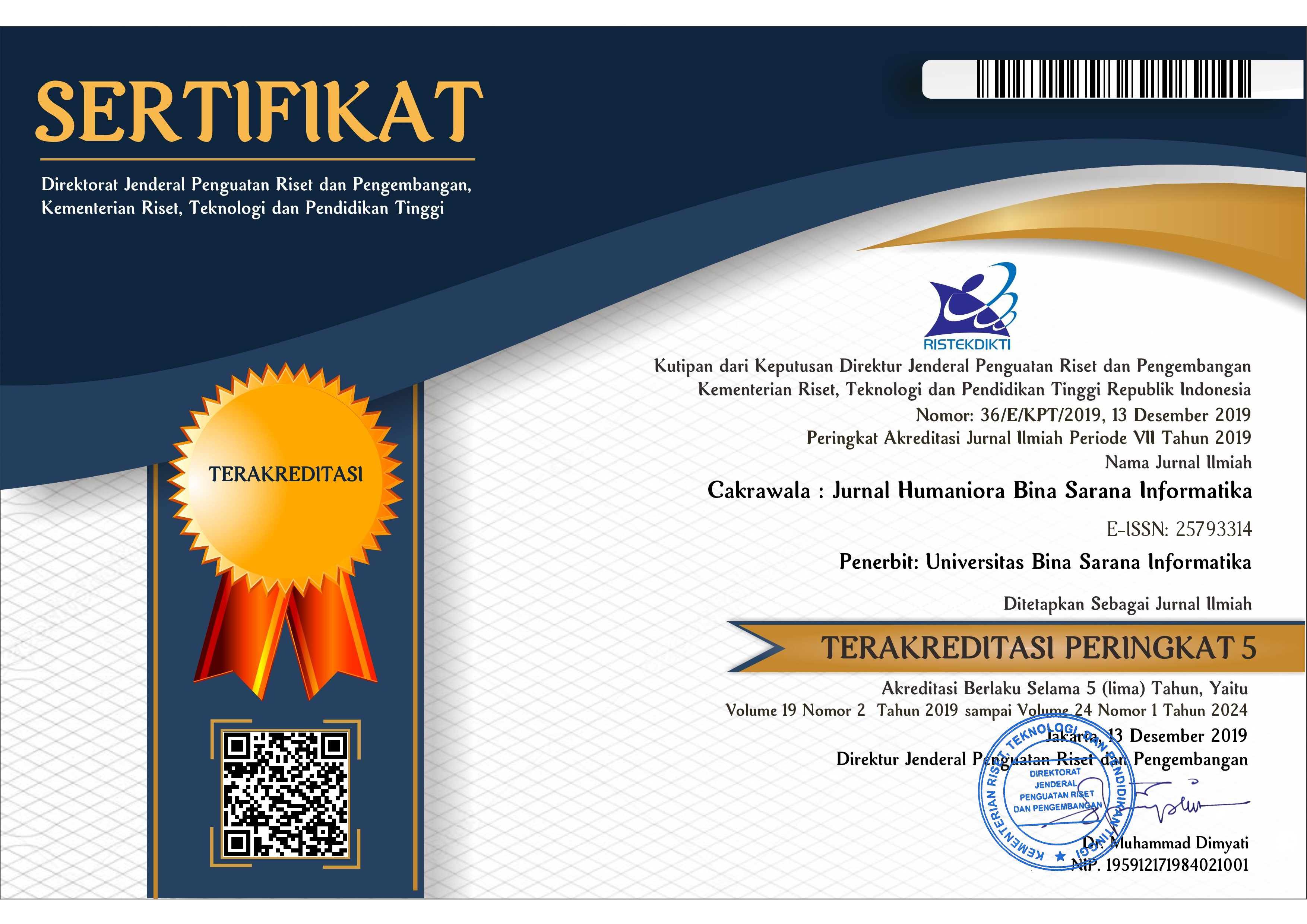Efektifitas Penyelenggaraan Otonomi Daerah Berbasis Elektronik Terhadap Upaya Pencegahan Tindak Pidana Korupsi (Studi Kasus Pemerintah Daerah Kota Dan Kabupaten Bekasi)
Abstract
One of the government's breakthroughs in facing the era of the industrial revolution 4.0 towards the implementation of electronic-based regional autonomy is Presidential Regulation No. 95 of 2018 concerning Electronic-Based Government Systems. Technological developments will create (to create), access (to access), manage (to process), and utilize (to utilize) information precisely and accurately. Information is a very valuable commodity in the era of globalization to be mastered in order to increase the competitiveness of an organization in a sustainable manner. This phenomenon is important to study, because this system is expected to be a solution related to the implementation of effective, efficient, transparent and accountable local governments for efforts to prevent corruption by utilizing the application of this technology. This type of legal research used by researchers is empirical sociological legal research. Empirical sociological legal research that includes research on legal identification (unwritten) and research on legal effectiveness. Data collection was carried out by interview, observation and literature study. This study aims to analyze the effectiveness of the implementation of electronic-based regional autonomy on efforts to prevent corruption (a case study of the Bekasi City and Regency Government). The conclusion is that the effectiveness of the implementation of electronic-based autonomy is not optimal, there are still problems that there is no national integrated SPBE governance, SPBE has not been applied to the implementation of government administration and public services as a whole and optimally, the reach of ICT infrastructure to all regions and to all levels of society not optimal, the limited number of ASN employees who have ICT technical competence. based on the substance of the regulations, it is necessary to regulate the authority of the central government and local governments in managing e-government. Meanwhile, the culture of sharing data and information between government agencies is still low; Information and communication technology (ICT) infrastructure has not reached all agencies, and information security management is weak in almost all government agencies. Based on the application of an electronic-based government system towards the prevention of corruption, one of which is to combat corruption is preventive efforts in addition to repressive measures
Full Text:
PDFDOI: https://doi.org/10.31294/jc.v21i1.9638
ISSN: 2579-3314


Dipublikasikan oleh LPPM Universitas Bina Sarana Informatika
Jl. Kramat Raya No.98, Kwitang, Kec. Senen, Kota Jakarta Pusat, DKI Jakarta 10450

This work is licensed under a Creative Commons Attribution-ShareAlike 4.0 International License









